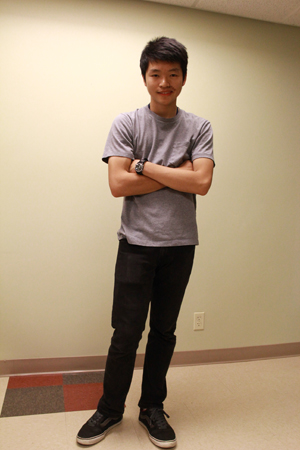
Victor Cai
By Victor Cai
SYLP STUDENT
Take a walk around the busy metropolitan areas of Seattle, like the International District or Downtown, and you’ll notice that it is a beautiful city with plenty of water and greenery. But something is awry. Along those beautiful city streets, you will encounter many people who are suffering from poverty and homelessness.
In Seattle, more than 8,000 individuals struggle with homelessness. And that number does not seem to be dwindling, but growing. The issue creates problems not just for those who are homeless, but also for the whole community.
One can imagine that life is difficult enough without a stable foundation.
However, in addition to not having a home, homeless individuals often suffer from major health issues, such as diabetes or heart problems. More than half of all homeless people have or have had some type of cardiovascular disease. In 2003, almost half of them had one chronic condition. Mental health is another problem. And to make things worse, many have problems with substance abuse, either through alcohol or drugs. The list goes on.
Living on the streets also proves incredibly dangerous. People discriminate and target the homeless resulting in hate crimes and violence. In 2007, a total of 160 attacks were directed towards homeless people. In 2008, there were a total of 106 attacks, 27 of which were fatal. Homeless people are affected because they appear vulnerable. Aside from that, they can be further isolated by their race, religion, and sexual orientation.
The saddest thing about all of this is the lack of action to prevent these incidents. It annoys me that the homeless are almost part of the scenery now.
Luckily, there are many services that acknowledge and attempt to help those who are dealing with homelessness. Such programs offer a wide range of services, including searches for long-term housing, counseling, job training, education, health care, and more.
Homelessness is an urgent crisis that has yet to be resolved in Seattle. Although not everyone is homeless, it is safe to say that all face the same issues when it comes to surviving. Aiding the homeless is something that can teach us how to further care for ourselves and those around us. Such generosity and kindness will hopefully put an end to homelessness and allow Seattle citizens to thrive and flourish. (end)
Editor’s note: This story was written by a Summer Youth Leadership Program student, not a Northwest Asian Weekly staff member.



